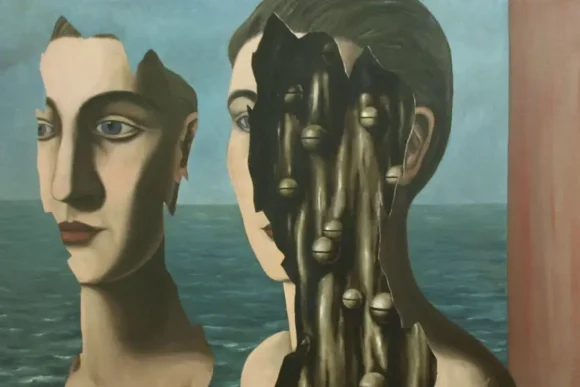Reading The Human Mind by Paul Bloom for New Scientist, 11 May 2023
Inspired, he tells us, by The Origin of the Universe, John Barrow’s 1994 survey of what was then known about cosmology, the Canadian American psychologist Paul Bloom set about writing an introductory tome of his own: a brief yet comprehensive guide to the human mind.
Emulating Barrow’s superb survey has been hard because, as Bloom cheekily points out, “the mysteries of space and time turn out to be easier for our minds to grasp than those of consciousness and choice.”
The first thing to say — though hardly the most interesting — is that Bloom nevertheless succeeds, covering everything from perception and behaviour to language and development; there’s even a small but very worthwhile foray into abnormal psychology. It’s an account that is positive, but never self-serving. Problems in reproducing some key studies, the field’s sometimes scandalous manipulation of statistics, and the once prevailing assumption that undergrad volunteers could accurately represent the diversity of the entire human species, are serious problems, dealt with seriously.
Of course Bloom does more than simply set out the contents of the stall (with the odd rotten apple here and there); he also explores psychology’s evolving values. He recalls his early behaviourist training, in a climate hostile to (then rather woolly) questions about consciousness. “If we were asked to defend our dismissal of consciousness,” he recalls, “we would point out that intelligence does not require sentience.”
Intelligence is no longer the field’s only grail, and consciousness is now front and centre in the science of the mind. This is not only a technical advance; it’s an ethical one. In 1789 Jeremy Bentham asked whether the law could ever refuse its protection to “any sensitive being”, and pointed out that “The question is not, Can [certain beings] reason?, nor Can they talk? but, Can they suffer?”
Suffering requires consciousness, says Bloom; understanding one enables us to tackle the other; so the shift in interest to consciousness itself is a welcome and humanising move.
This strong belief in the humanitarian potential of psychology allows Bloom to defend aspects of his discipline that often discomfort outside observers. He handles issues of environmental and genetic influences on the mind very well, and offers a welcome and robust defence of Alfred Binet’s 1905 invention, the measure of general intelligence or “intelligence quotient”. Bloom shows that the IQ test is as robust a metric as anything in social science. We know that a full half of us score less than 100 on that test; should this knowledge not fill us with humility and compassion? (Actually our responses tend to be more ambiguous. Bloom points out that Nazi commentators hated the idea of IQ because they thought Jews would score better than they would.)
Bloom is concerned to demonstrate that minds do more than think. The privileging of thinking over feeling and intuiting and suffering is a mistake. “A lot depends on what is meant by ‘rational.’ Bloom writes. If you’re stepping outside and it’s raining and you don’t want to get wet, it’s rational to bring an umbrella. But rationality defined in this manner is separate from goodness. “Kidnapping a rich person’s child might be a rational way to achieve the goal of getting a lot of money quickly,” Bloom observes, “so long as you don’t have other goals, such as obeying the law and not being a horrible person.”
Bloom’s ultimate purpose is to explain how a robustly materialistic view of the mind is fully compatible with the existence of choice and morality and responsibility. This middle-of-the-road approach may disappoint intellectual storm-chasers, but the rest of us can can be assured of an up-to-the-minute snapshot of the field, full of unknowns and uncertainties, yes, and speculations, and controversies — but guided by an ever-more rounded idea of what it is to be human.

